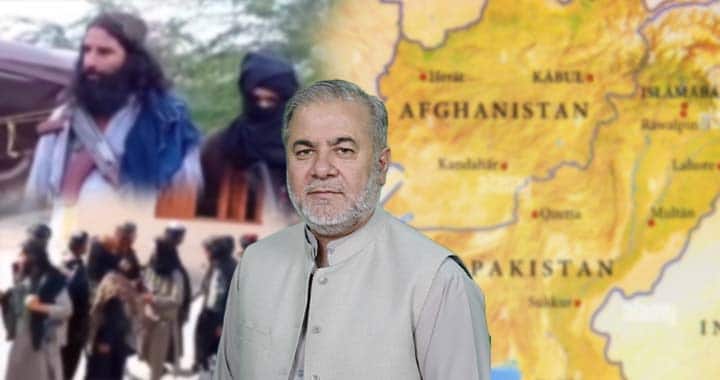Pakistan has once again conveyed a clear and uncompromising message to the Afghan Taliban: Afghanistan’s soil is being used against Pakistan, and the time has come for Kabul to make a choice either stand with Pakistan as a neighbor or continue to shelter the Tehreek-e-Taliban Pakistan (TTP) and other militants. This message, delivered amid escalating violence in Khyber Pakhtunkhwa, underscores a worsening security dilemma that is testing the already fragile relationship between the two countries.
Over the past two years, Pakistan has witnessed an alarming surge in terrorist attacks, particularly in Khyber, North and South Waziristan, Bajaur, Bannu, Dera Ismail Khan and Tank. What was once limited to improvised explosive devices and convoy ambushes has now escalated to highly organized assaults on security installations. Militants are storming police and Frontier Corps camps, killing as many as they can before withdrawing. In Bannu, a Major lost his life while trying to save a fellow soldier. In another devastating incident, 13 people were martyred in an attack on a convoy. These are not isolated events but part of a growing and dangerous trend.
Pakistan’s concerns are not speculative. The United Nations in its 2024 report confirmed that the TTP is the largest and most lethal militant group operating from Afghan soil, carrying out attacks inside Pakistan. Afghan nationals are regularly found among the attackers, crossing into Pakistan to fight. This is a deeply troubling reality that Kabul has so far refused to acknowledge honestly. Instead, the Afghan Taliban dismiss such incidents as Pakistan’s “internal problem,” insisting Islamabad must resolve its security challenges on its own. Yet, the Taliban’s own facilitation of meetings between Pakistani officials and the TTP in Kabul has left no doubt about where the group is based and how it is being sheltered.
Since the Taliban takeover in 2021, Pakistan has repeatedly sent delegations, ulema, and tribal elders to engage the Kabul regime on this issue. Even Pakistan’s Special Representative for Afghanistan, Asif Durrani (previously Sadiq Khan in the position), has tried tirelessly to secure cooperation. But the results remain dismal. Every assurance from Kabul has been followed by more bloodshed in Pakistan’s tribal districts.
The Afghan Taliban must recognize that this is no longer a question of diplomatic niceties. When 700 Pakistanis, most of them security personnel, are martyred in a single year, Pakistan cannot afford further ambiguity. The Afghan argument that the TTP’s activities are Pakistan’s “domestic matter” rings hollow when Afghan soil is the staging ground for these attacks.
At the same time, Pakistan must also reflect on its own approach. While dialogue remains essential for conflict resolution, past talks with the TTP have yielded little more than temporary lulls. Empty promises and false assurances cannot substitute for concrete action. Without the Afghan Taliban’s active cooperation, a sustainable peace process with the TTP is impossible.
Former US envoy Zalmay Khalilzad, who recently toured Afghanistan, suggested Pakistan should negotiate with the TTP as Washington once did with the Afghan Taliban in Doha. But this comparison is misleading. The Afghan Taliban fought foreign occupation; Pakistan faces a terrorist insurgency against a legitimate state and its people. The contexts are not comparable. Pakistan has a functioning government, strong armed forces, and resilient institutions. Unlike Kabul’s collapse in 2021, Islamabad will not hand over its sovereignty without resistance.
The way forward demands sincerity on both sides. Pakistan and Afghanistan must sit together and acknowledge that militancy is a shared problem. The embassy track can help—but only if those sitting at the table have both authority and credibility. Tribal elders, local communities, and even women must be part of the dialogue to ensure legitimacy and inclusion. Half-hearted talks and political scoring will only prolong the violence.
For now, however, the Afghan Taliban stand at a crossroads. They cannot continue to enjoy Pakistan’s diplomatic, political, and humanitarian support while simultaneously turning a blind eye to TTP sanctuaries on their soil. It is time for them to decide: Pakistan or the terrorists. The choice will determine not only the future of Pakistan-Afghanistan relations but also the fate of stability in the entire region.





